David Schoenbrod, Professor of Law at New York’s Law School
By Liz Attebery
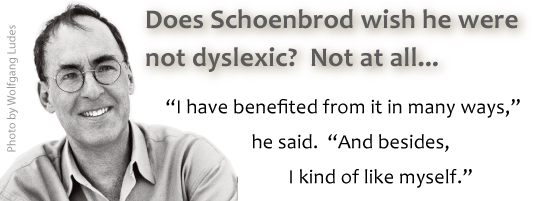
David Schoenbrod is an attorney, professor, and author who is nationally recognized for his contributions to environmental law and scholarship. A professor of environmental and constitutional law at New York Law School for over 25 years, he is the author or co-author of six books and numerous articles for major newspapers and scholarly journals. Schoenbrod has also served as an adjunct scholar and senior fellow at the Cato Institute, an independent public policy research organization, and a visiting scholar at the American Enterprise Institute for Public Policy.
All of these successes are amazing on their own, but even more so for a man whose third-grade teacher threatened to hold him back if his reading did not improve, and whose high school English teacher told Schoenbrod’s parents that he was literate in no languages. “My teachers kept criticizing me for what they took to be my lack of effort, and pushing me to try harder,” Schoenbrod said. “My parents did, however, help. My mother pushed me to practice reading so that I would not be held back in third grade, and my father, who was an excellent writer, coached me on essays in the early years of high school without writing them for me.”
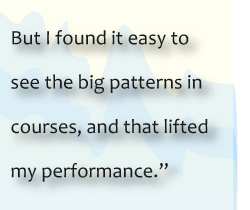
Schoenbrod was admitted to Yale University in 1960, largely on the basis of his outstanding abilities in science and math. But his score on a freshman reading comprehension test was so low that his faculty advisor questioned Schoenbrod’s ability to graduate and suggested that he also consider dropping organic chemistry. Around this time, Schoenbrod read an article crediting a reading coach with helping President John F. Kennedy boost his reading speed. So he hired his own coach, who told him to stop mimicking words with his vocal chords as he read. Aided by the coach and by intensive practice on his own, Schoenbrod’s reading improved tremendously by sophomore year. “I now know that speed reading can hurt some dyslexics; it helped me, perhaps because by then my spelling was good enough that I could recognize written words as pictograms,” he said.
Though he continued to struggle, and still does, when reading a large volume of material, he found ways to compensate. When preparing for a history test covering a massive amount of information, for example, he figured out questions most likely to appear on the test, outlined his answers, and scored close to 100. “I was not often able to anticipate exam questions so exactly,” he said. “But I found it easy to see the big patterns in courses, and that lifted my performance.”
Schoenbrod completed his undergraduate studies at Yale in three years, graduating magna cum laude in 1963 and receiving a Marshall Scholarship to study at Oxford University. He graduated from Oxford two years later with a graduate degree in economics and went on to receive a law degree from Yale in 1968.
Raised in a family dedicated to helping those less fortunate than themselves, Schoenbrod went to work developing programs for a Brooklyn anti-poverty organization founded by Robert Kennedy. In 1972, he joined the Natural Resources Defense Council (NRDC) as a senior staff attorney and spearheaded the campaign to get lead additives out of gasoline. With studies linking lead emissions to death and crippling brain diseases in children, Congress charged the Environmental Protection Agency with protecting health from airborne lead by 1976. When the EPA made little progress toward that goal, Schoenbrod took the agency to court and won many decisions. But he could not get all the lead out. In a 1999 article he wrote for Commentary magazine, Schoenbrod said that because total lead removal would have translated into higher prices at the pump, it was not until the mid-1980s that the EPA really got tough on lead. By then, most of the old cars using leaded gasoline had been junked. Schoenbrod lays blame for the failure on Congress, which he believes abdicated its responsibility by delegating authority for making and enforcing environmental regulations to the EPA. As he stated in Commentary, “When legislators themselves enact the laws, they must take responsibility for the rights granted and the duties imposed. When they delegate this responsibility to another entity, they can take credit for any successes achieved, while shifting to the agency, or the states, the blame for disappointments and costs.”
Schoenbrod left the NRDC in 1979 to teach and write. “I have also done four or five Supreme Court amicus cases and a little bit of consulting,” he said. Among his books from Yale University Press are Power Without Responsibility: How Congress Abuses the People Through Delegation, and Saving Our Environment from Washington: How Congress Grabs Power, Shirks Responsibility, and Shortchanges the People. His latest book, written with professors from NYU School of Law and published by the Press, is Breaking the Logjam: Environmental Protection That Will Work, based on a project including input from 50 noted environmental lawyers and scientists.
Despite his numerous accomplishments, Schoenbrod has never forgotten the humiliation he experienced as a young student. It was not until the early 1990s that he read a newspaper article about dyslexia and associated his reading problems with the disability. The article also shed light on an incident in the sixth grade that had puzzled him for years. He wrote about the incident in the Huffington Post.
“I got most of the answers wrong on an arithmetic exam, a sharp drop from my usual performance,” said Schoenbrod. On this occasion, however, the teacher had written the problems on the board in words, rather than numbers. I asked for help in understanding where I went wrong and came to see that I had made many mistakes in translating the words into numbers. But I remained puzzled as to why translating words into numbers was harder for me than for other students.
Schoenbrod also wondered how he had been able to excel in college, law school, and his career, all of which require a facility with words and entail massive amounts of reading. A 2008 lecture by YCDC Co-Directors Drs. Bennett and Sally Shaywitz provided some answers. They explained that dyslexics struggle with decoding, or translating written letters into sounds, because of a disruption in one of the three areas of the brain associated with reading, but they develop compensating mechanisms in other parts of the brain. The consequence is that reading is possible, but at a greater effort than for ordinary people. On the positive side, Schoenbrod learned that people with dyslexia tend to have outstanding abilities in higher level thinking and reasoning, as well as in the arts and other creative areas.
When asked how an early diagnosis of dyslexia might have changed his life, Schoenbrod said, “Together, my parents and teachers got me to raise my level of concentration sufficiently to find compensations for my impediment. In my case, special help based upon a diagnosis of dyslexia might have made me think of myself as a victim and not make this effort,” he said. “I might have been better off without such a diagnosis. On the other hand, I think my case is unusual because either my intelligence was great enough or my problems small enough that I could overcome them without having the label.” Schoenbrod is now a firm believer in the value of giving dyslexic students extra help and accommodations, such as extra time on tests.
As for dyslexia’s impact on his career, Schoenbrod said that as an environmental litigator, he has found it easy to imagine strategies that, combined, used litigation to change political outcomes, and politics to change litigation outcomes. He has learned that in addition to being able to see the big picture, dyslexics are often good storytellers and can envision things spatially. “My real strength as a litigator,” he said, “was in stating the facts.” Schoenbrod, who enjoyed sculpting when young, is now taking advantage of his ability to see things spatially by “sculpting” the fields around his home in the Adirondacks, as well as creating clay and wood sculptures. Does he wish he were not dyslexic? “I have benefited from it in many ways,” he said. “And besides, I kind of like myself.”
Related
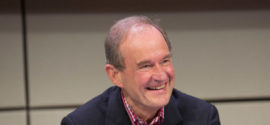
David Boies, Attorney & Chairman of Boies, Schiller & Flexner LLP
David Boies, perhaps the nation’s most highly acclaimed and sought-after attorney, is known for his brilliance, creativity and passion for justice. Boies has represented clients in many of the nation’s landmark high-profile cases, including Bush v. Gore, where he represented Vice President Al Gore in litigation surrounding the controversial 2000 presidential election; the U.S.
Read More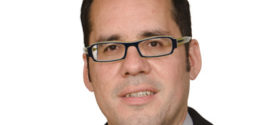
Rafael Galvan, Attorney with Orrick’s Energy and Infrastructure Group
A lawyer and partner at the New York office of international law firm Orrick, Herrington & Sutcliffe, LLP, Rafael Galvan has worked on or led a number of deals that were honored with Deal of the Year Awards. While attending University of Pennsylvania Law School, Galvan sat on two law journals—one of which he founded with another student. After Law Review, it is the most sought-after journal at the school.
Read More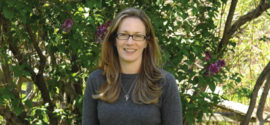
Bonnie Patten, Attorney & Executive Director of Truth in Advertising
Litigation attorney Bonnie Patten has successfully defended physicians and health care providers in complex and unique medical claims. Her expertise in health care litigation is so well respected that she has been asked to present at conferences on the subject.
Read More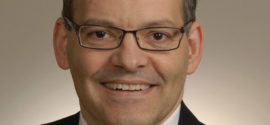
Kent Sinclair, Founder and Managing Member of Sinclair Law, LLC
Kent Sinclair works as a managing director at Stroz Friedberg, LLC, a global consulting and technology firm, which is a leader in data privacy and security, investigations, and risk management for corporations and executives.
Read More